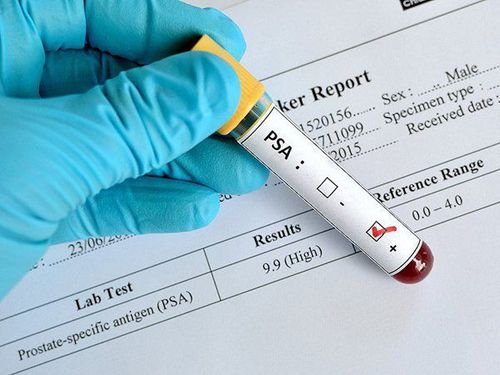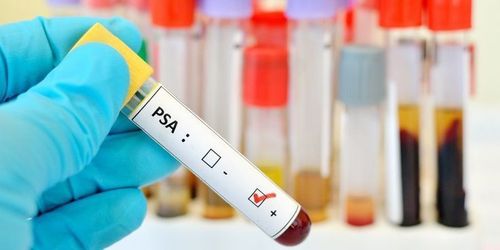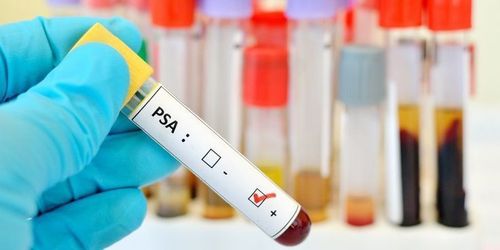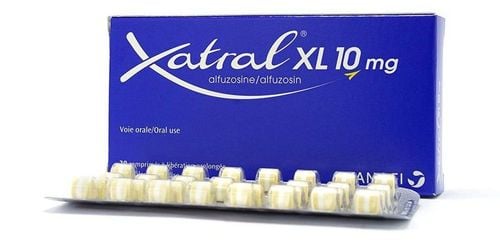This is an automatically translated article.
Prostate cancer is a common disease in men, in the early stages it is difficult to detect because there are no obvious symptoms. Prostate cancer blood test PSA not only helps to detect the disease at the beginning, but also shows the effectiveness during and after treatment.1. Overview
Prostate-specific antigen (PSA) levels in a man's blood are often an indication of whether treatment is working. In general, your PSA level will go very low after treatment. But PSA results are not always reliable. So sometimes doctors aren't sure what this PSA indicator means either.Before starting treatment, patients can ask their doctor about what PSA levels to expect during and after treatment, as well as what levels are worrisome. However, it is important to know that PSA levels are only one part of the total. Other factors also play a role, helping to determine if the cancer is still present, growing, or has returned.
In fact, many men undergoing treatment for prostate cancer are very concerned about even slight variations in PSA levels. Also be aware that PSA levels will sometimes fluctuate slightly on their own, even during or after treatment. So this number is not always indicative of your cancer status. The PSA is an important tool for monitoring cancer, but not every increase in PSA means the cancer is growing and requires immediate treatment. To help limit unnecessary anxiety, be sure to understand how changes in the PSA score are of concern.

Trước khi bắt đầu điều trị, bệnh nhân có thể hỏi bác sĩ về mức PSA mong đợi trong và sau điều trị
2. During the monitoring or monitoring phase
If a doctor prescribes watchful waiting or active surveillance, the number and rate of increase in PSA will be closely monitored (usually along with other tests). to see if the cancer has grown, and then to consider treatment decisions.Not all doctors agree the correct PSA level indicates the need for a prostate biopsy or treatment. So, discuss it with your doctor to understand if changes in the PSA score are cause for concern.
3. After surgery
Your PSA will drop to very low levels, even undetectable, within a few months of a radical prostatectomy. Because some PSA can remain in the blood for several weeks after surgery - even if all prostate cells have been removed, doctors usually recommend waiting at least 6-8 weeks after surgery. recheck PSA level.Some men are often concerned when their PSA is still detectable after surgery, even at very low levels. But this does not always mean that the cancer is still in the body. Modern prostate cancer blood tests can detect extremely small amounts of PSA. If the levels are negligible, especially if the PSA doesn't increase over time, there's nothing to worry about. There are cases when there are still some cells in the body that make PSA, but not necessarily cancer cells.
In fact, detecting PSA levels after surgery can be stressful for patients and family members. In this case, it's a good idea to ask your doctor what the results mean and get the best advice right now. Some doctors may order continued monitoring of PSA levels over time to better understand the current condition. Other doctors may recommend further treatment.
If your prostate cancer PSA is up after surgery, your doctor will also need to know how quickly the rate increases. Some evidence suggests that rapidly rising PSA levels may be a sign of cancer. Men whose PSA levels doubled within 3 months had a worse prognosis than patients whose PSA levels did not double. This is also known as PSA doubling time.
4. After radiation therapy
Radiation therapy doesn't kill all of the cells in the prostate, so it's unlikely that PSA will drop to undetectable levels. The remaining normal prostate cells will still make some PSA.The pattern of PSA reduction after radiation therapy is also different from that after surgery. PSA levels after radiation tend to decrease slowly, it may take up to 2 years or more to reach the lowest level.
After radiation therapy, doctors tend to monitor PSA levels every few months. A mildly elevated PSA finding forces a doctor to monitor it more closely, but that doesn't mean the cancer persists (or has recurred). As mentioned, PSA levels can fluctuate slightly over time. However, increased PSA in consecutive prostate cancer blood tests after treatment may indicate that the tumor is still there. Some experts suggest that if PSA rises more than 2 ng/mL from the trough achieved, further treatment should be considered. However, some doctors also recommend testing to find residual tumors in the body even if the PSA has not increased much.
In addition, there is a phenomenon known as the PSA bounce (PSA bounce), which sometimes occurs after external beam radiation and brachytherapy (Parachytherapy or Brachytherapy). / in). Specifically, the prostate cancer PSA index increased slightly during the first few years after treatment, then decreased again. Doctors aren't sure why this happens, but it doesn't seem to affect the patient's prognosis.
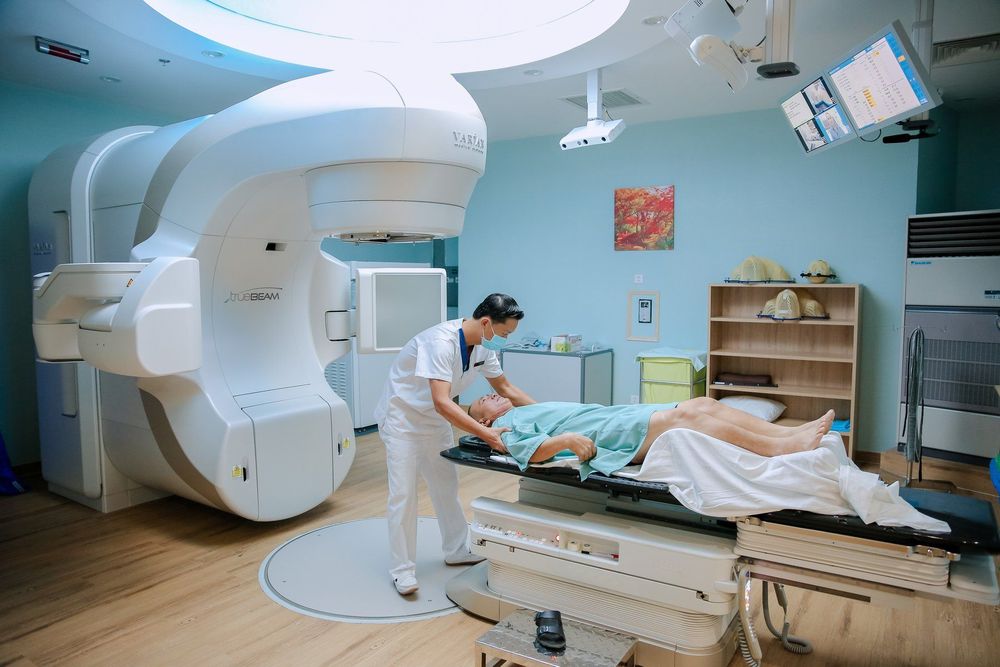
Xạ trị không tiêu diệt tất cả các tế bào trong tuyến tiền liệt
5. During the treatment of terminal prostate cancer
When treatments, such as hormone therapy, chemotherapy or immunotherapy, are given to more advanced prostate cancer, PSA levels can indicate the effectiveness of treatment or determine Time to try a different cure.In general, treatments should lower PSA levels (at least initially). Although in some cases, treatment can only keep PSA levels from rising further, or even just slow the rate of increase. Of course, other factors - such as symptoms of the cancer or imaging tests for tumor growth - are also important in deciding whether to change treatment.
If the cancer has spread beyond the prostate, the actual PSA level is often less important than the fluctuation and how quickly it rises. Prostate cancer PSA by itself does not predict symptoms or prognosis. Many men with very high PSA levels feel fine, while others with low PSA levels experience symptoms.
Vinmec International General Hospital with the most advanced equipment, a team of top doctors with many years of experience in the field of urology is the perfect healthcare address for you and your loved ones. To detect the possibility of prostate cancer early, you can refer to the prostate cancer intensive examination package at Vinmec hospitals and clinics nationwide.
If you have a need for consultation and examination at Vinmec Hospitals under the national health system, please book an appointment on the website for service.
Please dial HOTLINE for more information or register for an appointment HERE. Download MyVinmec app to make appointments faster and to manage your bookings easily.
Reference source: cancer.orgMORE:
Biopsies for rapid diagnosis of prostate cancer Robotic surgery to "blow" prostate cancer for Japanese doctors Prostate cancer intensive examination package




